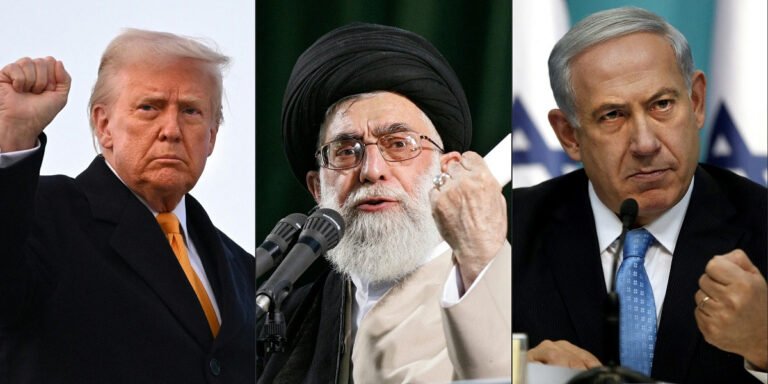Israel and Iran exchanged fire again on Wednesday, the sixth day of strikes in their most intense confrontation in history, fuelling fears of a drawn-out conflict that could engulf the Middle East.
Here are the latest developments:
Trump on strikes, negotiations
President Donald Trump said Wednesday he was considering whether the United States will join Israeli strikes on Iran and said that Tehran had reached out to seek negotiations on ending the conflict.
“I may do it, I may not do it. I mean, nobody knows what I’m going to do,” Trump told reporters. “I can tell you this, that Iran’s got a lot of trouble, and they want to negotiate.”
Trump said Iran had even suggested sending officials to the White House for talks on Tehran’s nuclear program in a bid to end Israel’s air assault, but added that it was “very late”.
When asked if it was too late for negotiations, he said: “Nothing is too late.”
Israel says hit ‘internal security’ HQ
Israeli Defence Minister Israel Katz said air force jets had destroyed Iran’s “internal security headquarters”, while AFP journalists reported hearing blasts in Tehran.
“Air Force jets have just destroyed the internal security headquarters of the Iranian regime — the main arm of repression of the Iranian dictator,” Katz said in a statement, vowing to “strike symbols of governance and hit the Ayatollah regime wherever it may be”.
Khamenei warns US against intervention
Supreme leader Ayatollah Ali Khamenei said his nation would “never surrender”, while warning the United States it would suffer “irreparable damage” if it intervenes in the conflict.
“This nation will never surrender,” Khamenei said in a speech read on state television. “America should know that any military intervention will undoubtedly result in irreparable damage.”
Trump had stepped up his rhetoric, saying on Tuesday that the United States knows where Khamenei is located but will not kill him “for now”.
Centrifuge facility hit
The Israeli military said it targeted a centrifuge facility in overnight strikes on Tehran.
Centrifuges are vital for uranium enrichment, the sensitive process that can produce fuel for reactors or, in highly extended form, the core of a nuclear warhead.
The UN nuclear watchdog later said two centrifuge production facilities had been destroyed at Karaj, just outside Tehran.
Rising toll
Israel’s attacks have hit nuclear and military facilities around Iran, as well as residential areas.
Residential areas in Israel have also been hit, and foreign governments have scrambled to evacuate their citizens from both countries.
Israeli Prime Minister Benjamin Netanyahu’s office said on Monday that at least 24 people have been killed in Israel and hundreds wounded since Iran’s retaliatory strikes began Friday.
Iran said on Sunday that Israeli strikes had killed at least 224 people, including military commanders, nuclear scientists and civilians.
Internet restrictions
Iran said Wednesday it had detained five suspected agents of Israel’s Mossad intelligence agency on charges of tarnishing the country’s image online, Iranian news agencies reported.
Iran announced last week that it was placing temporary restrictions on the internet for the duration of the conflict. Numerous sites and apps have since been at least partially inaccessible.
The authorities appealed to the public on Tuesday to “minimise their use of equipment connected to the internet and to take appropriate precautions” online.
State television appealed to Iranians on Tuesday to delete WhatsApp from their phones, charging that the messaging app gathers users’ location and personal data and “communicates them to the Zionist enemy”.
A WhatsApp spokesperson hit back against the claims, saying: “We’re concerned these false reports will be an excuse for our services to be blocked at a time when people need them the most.”



